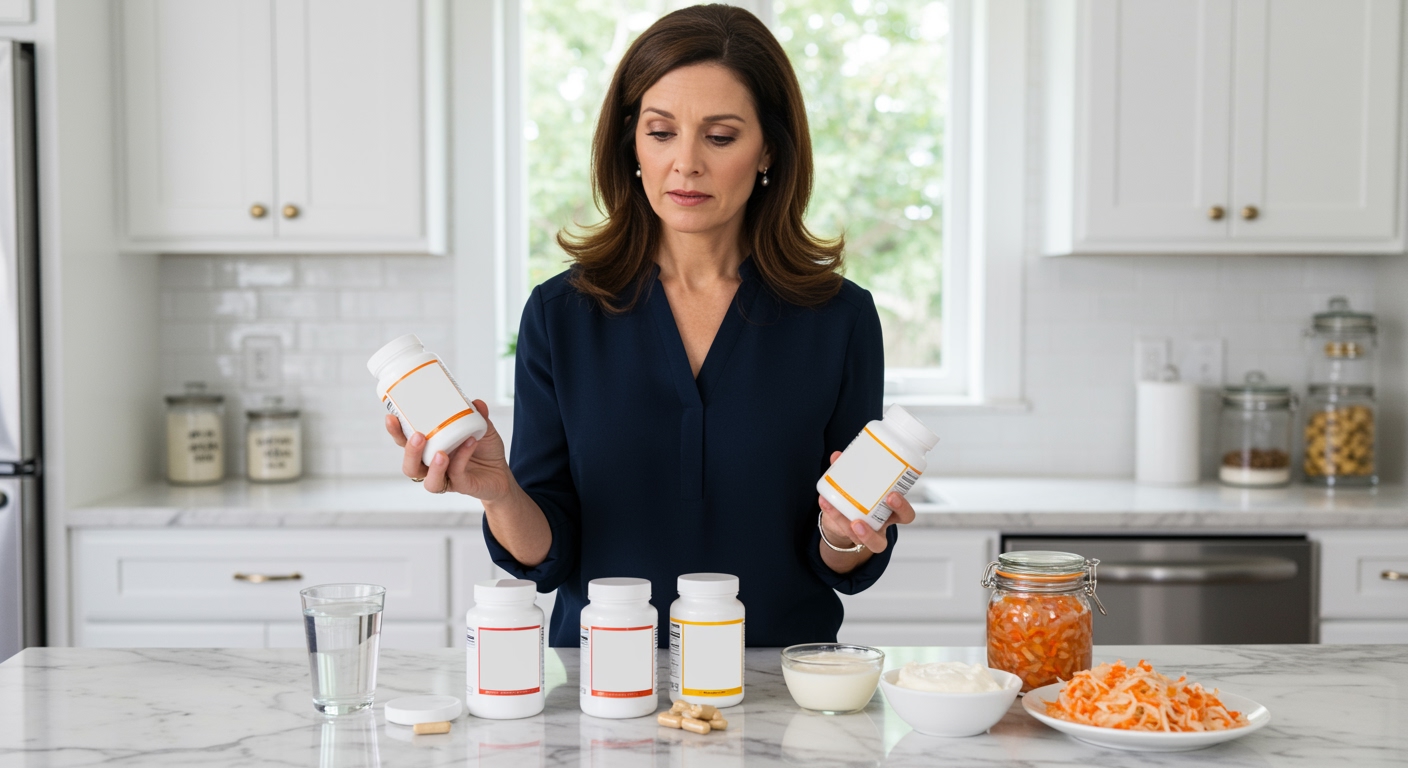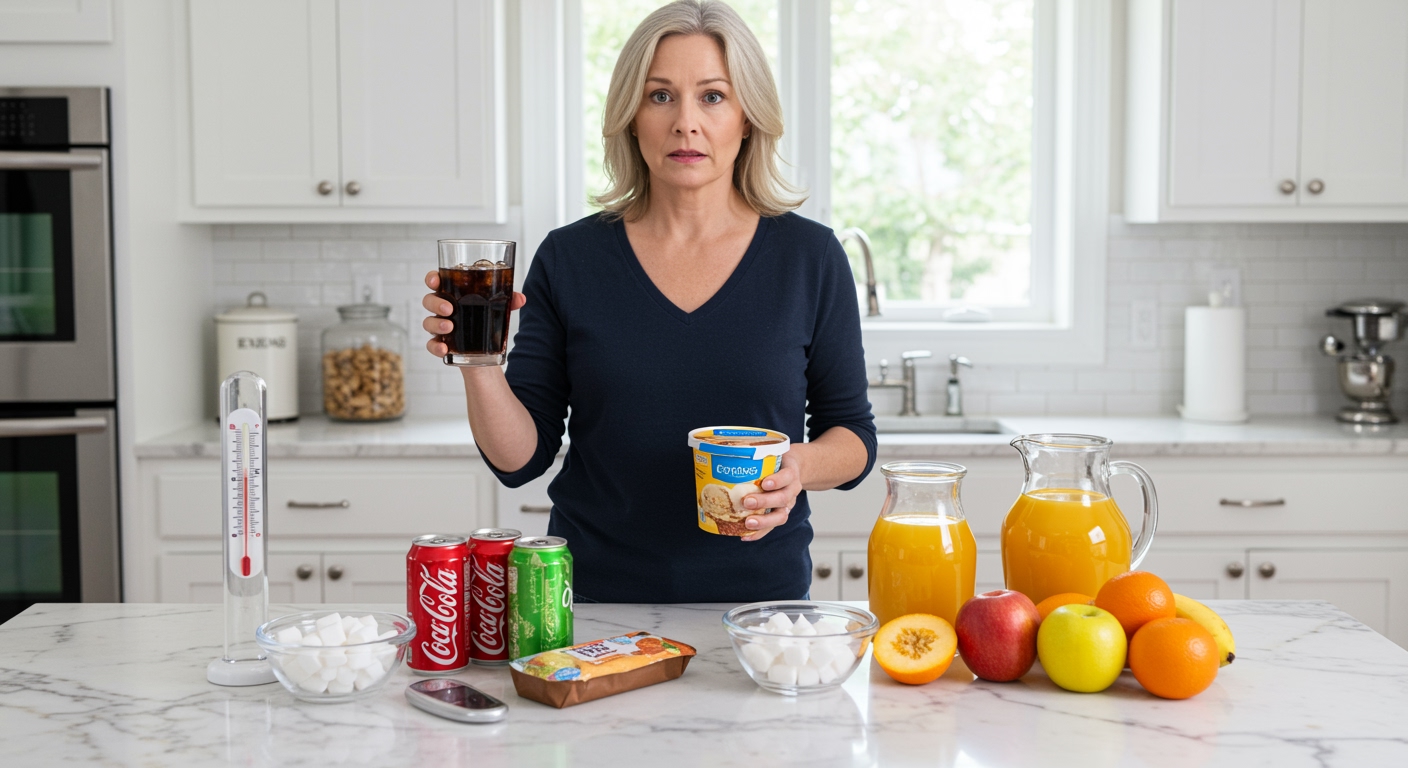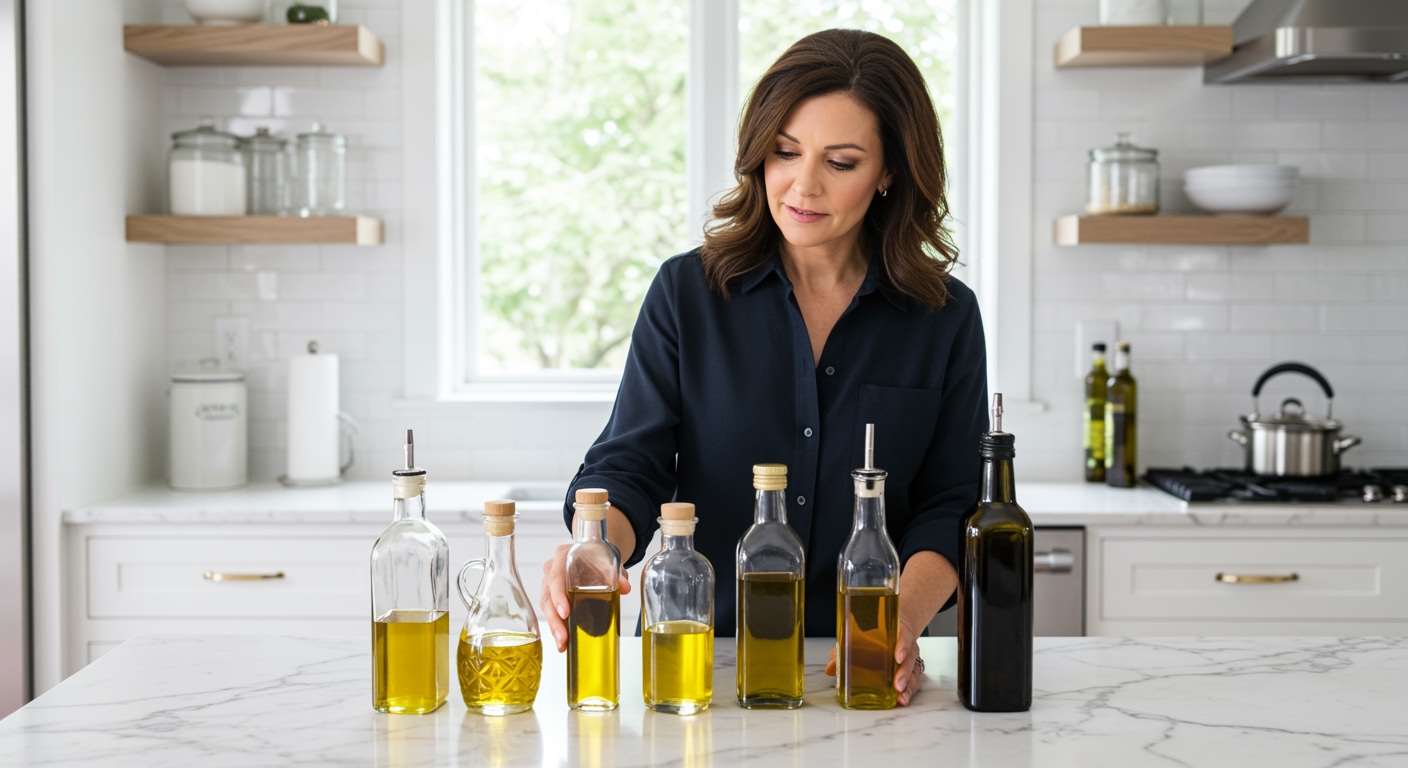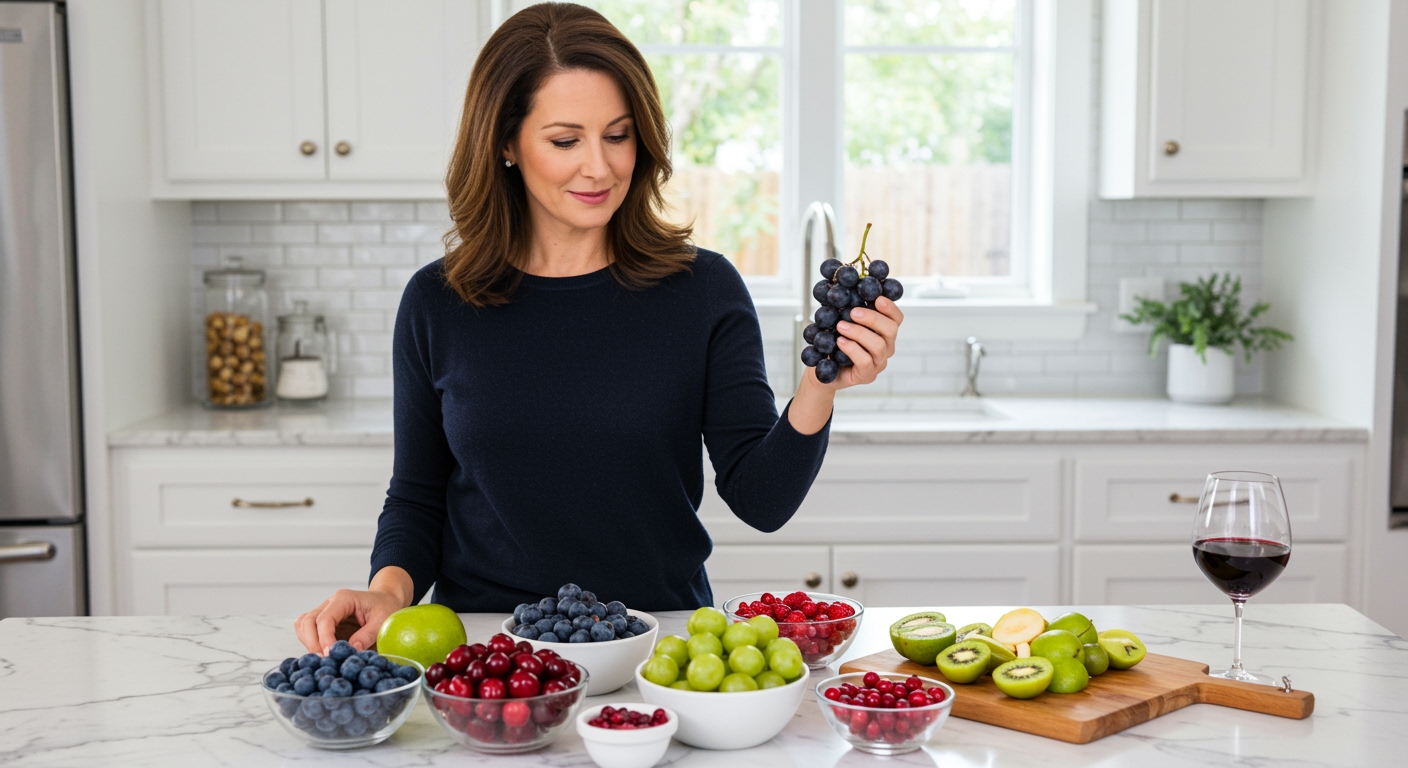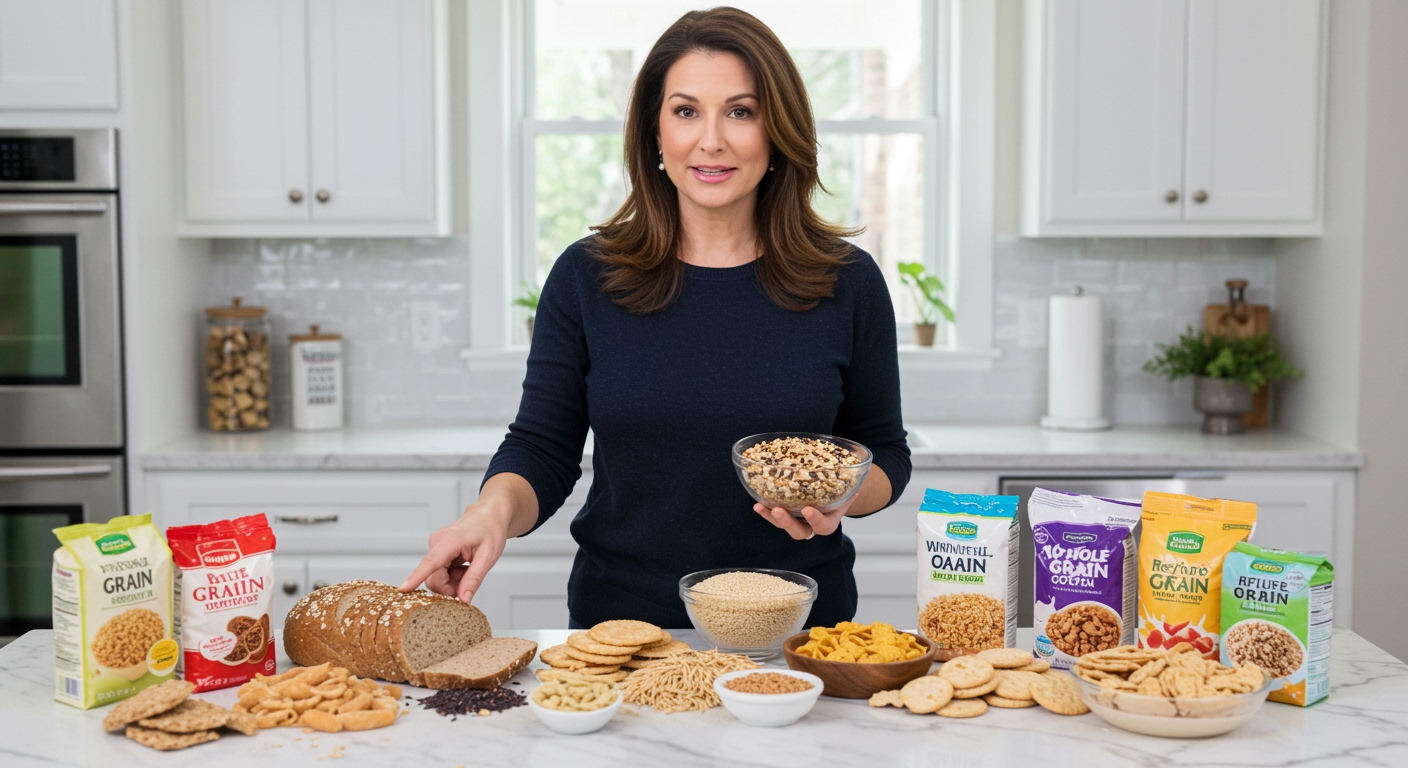✪ Key Highlight: New research shows some probiotic strains delay gut recovery after antibiotics instead of helping restore microbiome balance.
Introduction
Your doctor prescribes antibiotics and tells you to take probiotics afterward to restore your gut health.
But groundbreaking research from North Carolina State University reveals that some probiotic strains actually slow down your gut recovery instead of speeding it up.
Hi, I’m Abdur, your nutrition coach and today I’m going to analyze this shocking study that challenges everything we thought we knew about probiotics after antibiotic treatment.
What Did This Groundbreaking Study Discover?
Scientists at North Carolina State University and the University of North Carolina at Chapel Hill conducted a controlled experiment using mice to test how different probiotic strains affect gut recovery after antibiotics.
The research team, led by Casey Theriot and Noah Rivera-Chávez, focused on two popular probiotic strains that millions of people take daily.
They gave mice antibiotics to disrupt their gut microbiota, then introduced either Lactobacillus rhamnosus GG, Saccharomyces boulardii, both strains together, or no probiotics at all.
The researchers carefully tracked how each group’s gut microbiome recovered over time using advanced genetic sequencing techniques.
Their findings completely overturned the common belief that any probiotic helps after antibiotic treatment.
The study revealed that probiotic effects depend entirely on the specific strain you choose, not just the fact that you’re taking probiotics.
✪ Fact: Your gut contains over 1000 different bacterial species that work together in complex ways.
Which Probiotic Strains Help Versus Harm Recovery?
Lactobacillus rhamnosus GG emerged as the clear winner in helping gut microbiome recovery after antibiotics.
This strain helped restore microbial diversity and balance faster than mice that received no probiotics at all.
However, Saccharomyces boulardii actually slowed down the recovery process significantly.
This yeast-based probiotic delayed the return of a healthy, diverse gut microbiome compared to taking no probiotics.
When researchers gave both strains together, the negative effects of Saccharomyces boulardii overpowered the benefits of Lactobacillus rhamnosus GG.
The combination resulted in slower overall recovery than taking the beneficial strain alone.
Rivera-Chávez explained that some strains can be detrimental to recovery, challenging the popular belief that any probiotic helps after antibiotics.
✪ Pro Tip: Always check the specific strain name on probiotic labels, not just the general bacterial family.
Why Do Some Probiotics Interfere With Natural Recovery?
Your gut microbiome functions like a complex ecosystem where different bacterial species compete for space and resources.
When antibiotics wipe out your natural gut bacteria, they create empty niches that need to be refilled.
Some probiotic strains can occupy these spaces and prevent your original microbes from returning to their natural positions.
This interference delays the restoration of your unique microbial fingerprint that developed over years of life.
Saccharomyces boulardii appears to create this blocking effect, taking up space that would otherwise be filled by beneficial native bacteria.
The gut ecosystem needs time and space to rebuild its natural balance without interference from incompatible microorganisms.
Each person’s microbiome is unique, making it impossible to predict how any single probiotic will interact with individual gut bacteria.
✪ Note: Your gut microbiome is as unique as your fingerprint and changes throughout your lifetime.
What Do Other Experts Say About This Research?
The International Scientific Association for Probiotics and Prebiotics recently reviewed all available evidence on this topic.
Their expert panel concluded that there isn’t enough data to prove probiotics can restore gut microbiota to its pre-antibiotic state in humans.
Only a few strains like Bifidobacterium lactis subsp. animalis BB-12 have been tested in well-designed human trials.
Even these limited studies show mixed results regarding microbiome restoration after antibiotic treatment.
Some research suggests that probiotics might help reduce antibiotic-associated diarrhea symptoms.
However, their ability to help the gut microbiome fully recover remains unclear and strain-dependent.
Multiple studies indicate that taking the wrong probiotics after antibiotics might delay natural microbial diversity recovery.
✪ Fact: Most probiotic research focuses on symptom relief rather than actual microbiome restoration.
What Should You Do Instead Of Taking Random Probiotics?
Experts now recommend focusing on feeding your existing gut bacteria rather than adding random probiotic strains.
Eat a wide variety of fiber-rich foods like vegetables, fruits, whole grains, and legumes to nourish beneficial microbes.
Include fermented foods with live cultures such as yogurt, kefir, sauerkraut, and kimchi in your daily diet.
Spend time in environments that expose you to diverse microbes, like being outdoors or around healthy animals.
This approach helps support the regrowth of your own unique gut bacteria instead of forcing foreign strains.
Avoid processed foods and artificial sweeteners that can further disrupt your recovering microbiome balance.
Give your gut time to naturally rebuild its ecosystem without interference from potentially harmful probiotic strains.
✪ Pro Tip: Prebiotic fiber feeds your existing gut bacteria more effectively than adding new probiotic strains.
The Bottom Line
This research proves that not all probiotics help your gut recover after antibiotics, and some can actually make recovery slower.
The strain matters more than the marketing claims on the bottle.
I’d love to hear your thoughts about this surprising research or any questions you have about gut health recovery in the comment section below.
References
At NutritionCrown, we use quality and credible sources to ensure our content is accurate and trustworthy. Below are the sources referenced in creating this article:
- Frontiers in Microbiomes: Probiotic effects on gut microbiota recovery
- PMC: Antibiotic disruption of gut microbiome
- ISAPP Science: Evidence for probiotics restoring microbiota
- UCLA Health: Antibiotics effect on gut microbiome
- NC State Research: Probiotics help or hinder gut recovery
